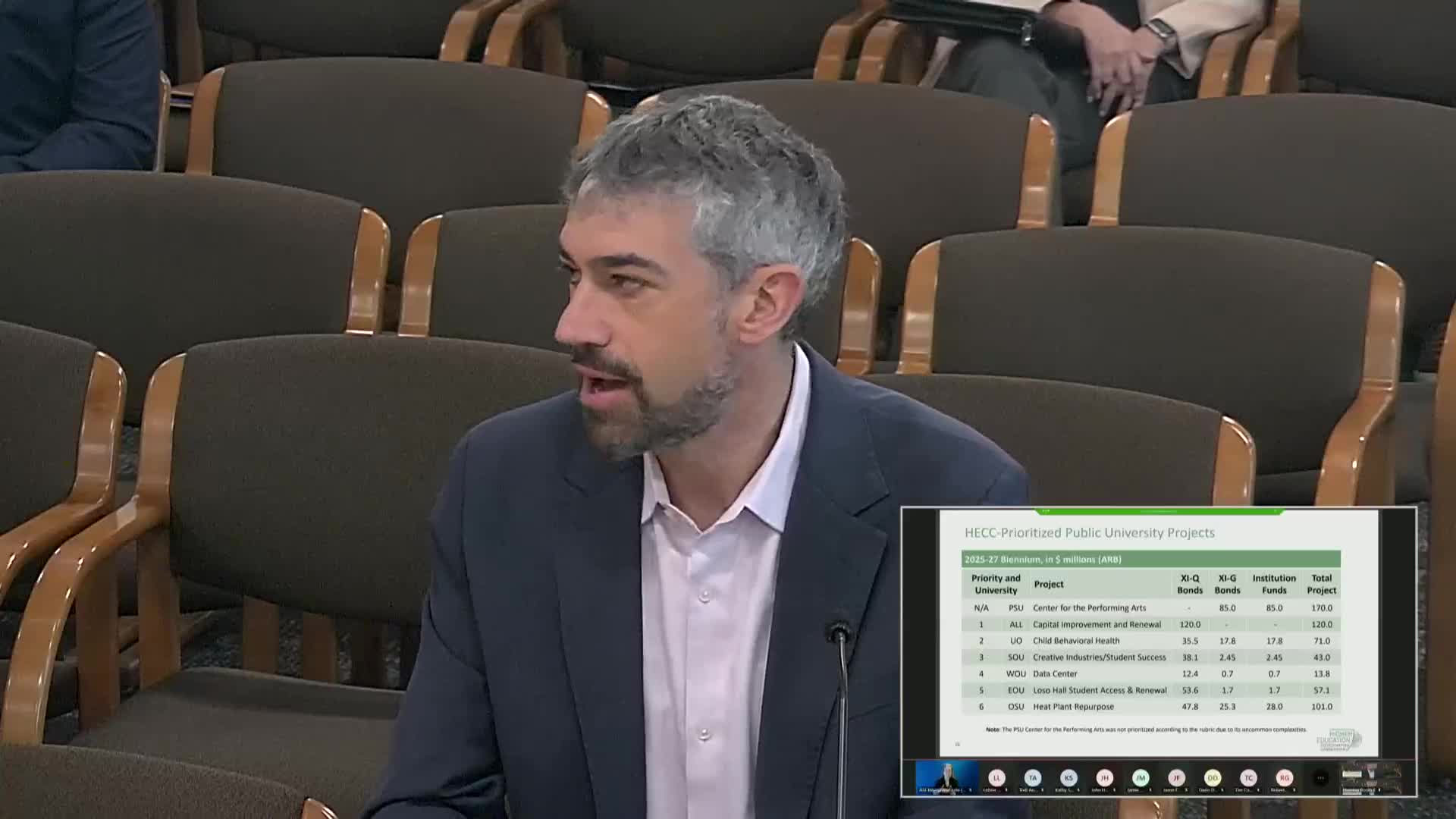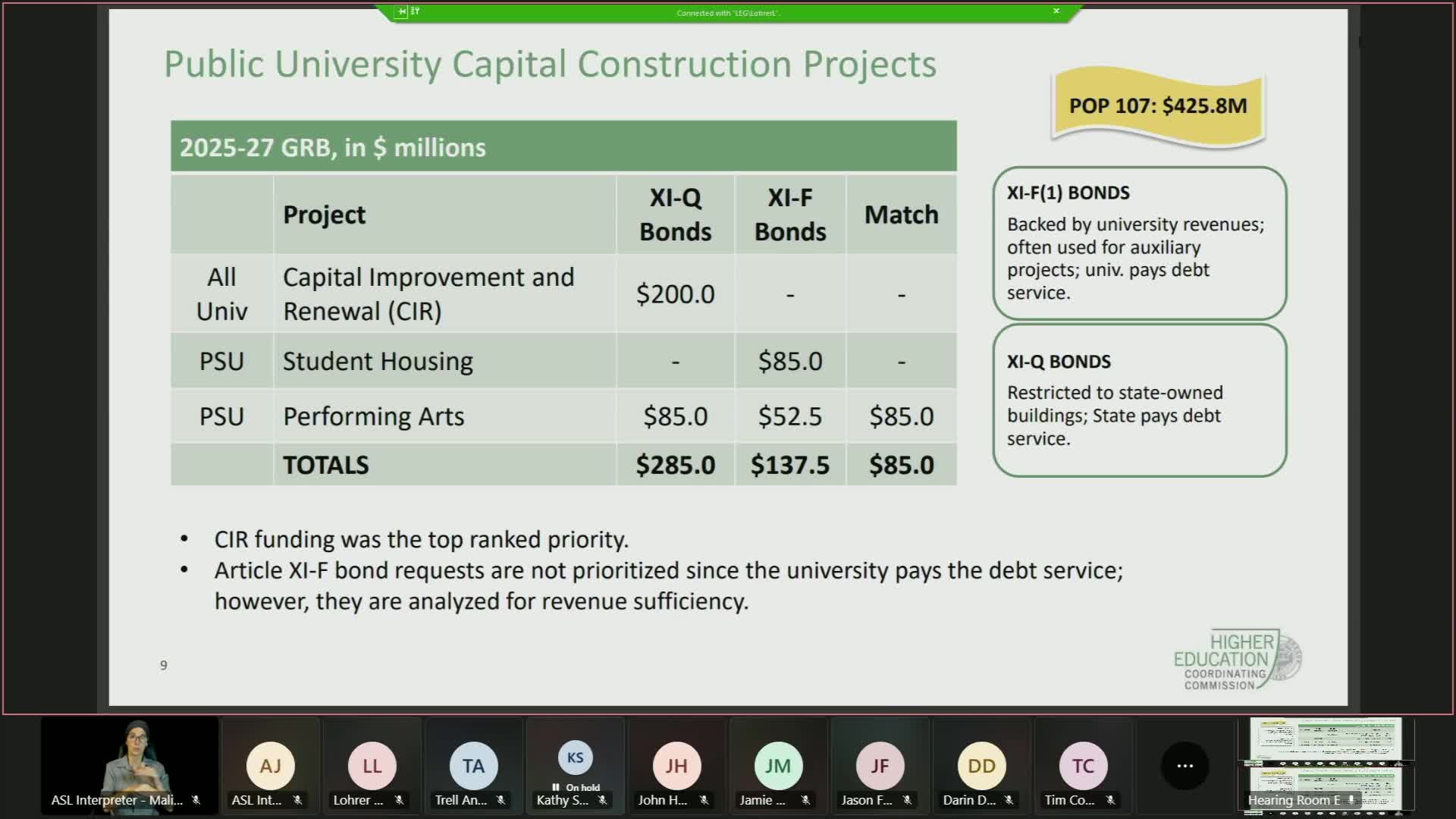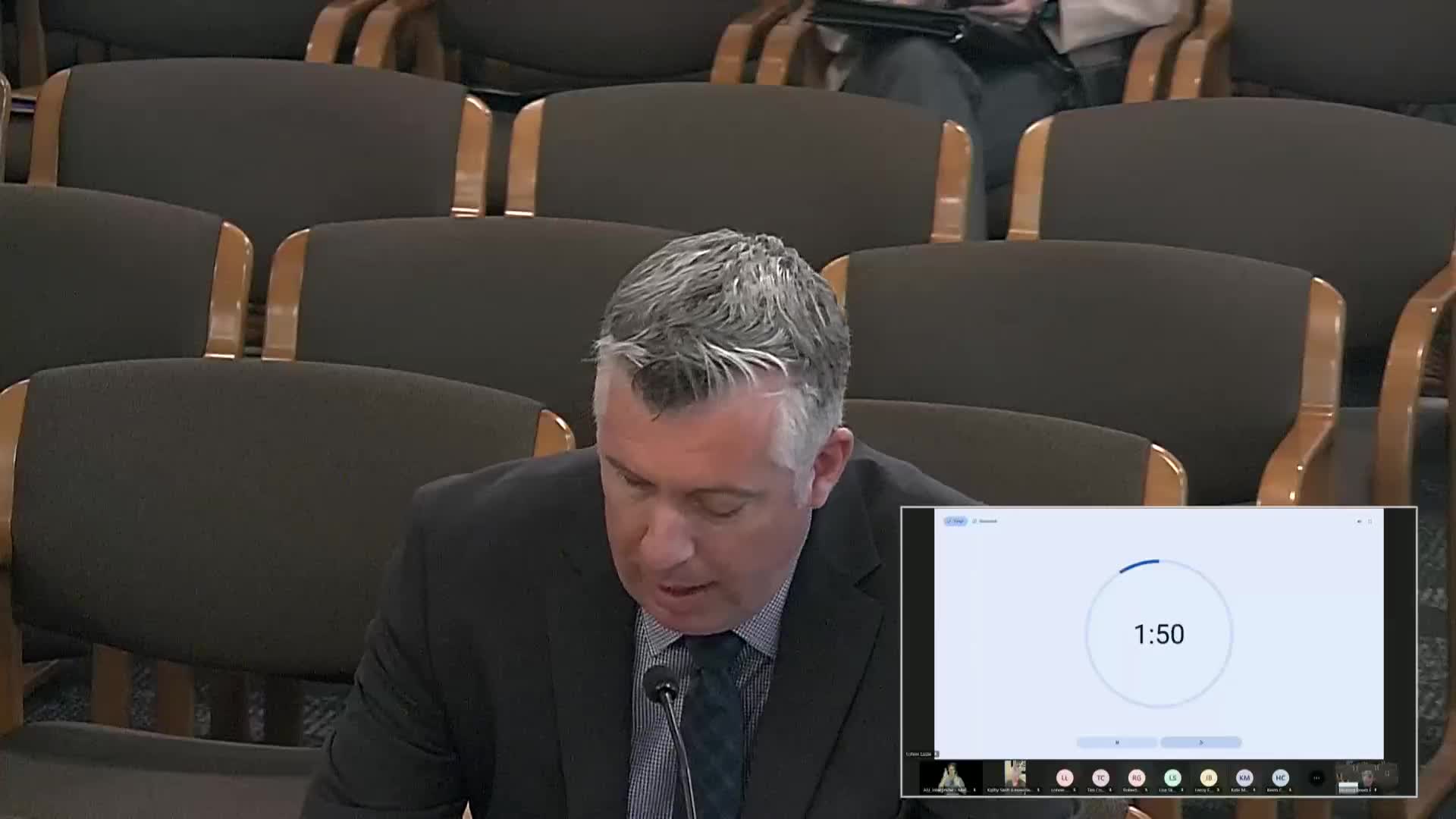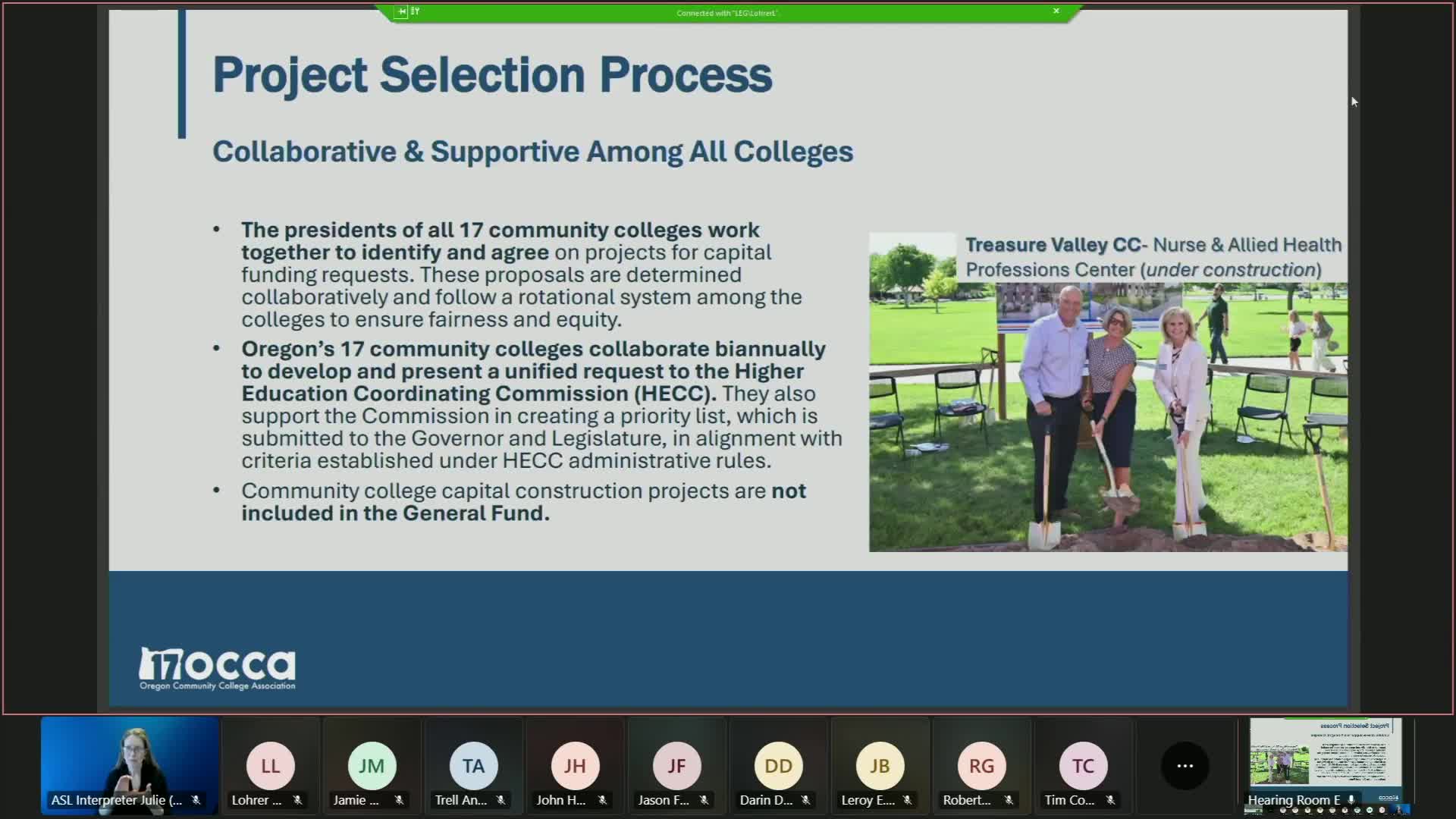Article not found
This article is no longer available. But don't worry—we've gathered other articles that discuss the same topic.

Portland State's performing arts center framed as regional catalyst; HEC did not rank it under higher‑education rubric

State higher education panel and governor back $200 million for university capital improvement fund

Oregon National Guard seeks funds for multipurpose range, armory upgrades and a Linn County retrofit

Housing advocates back $880 million for new affordable homes and urge $100 million for preservation

